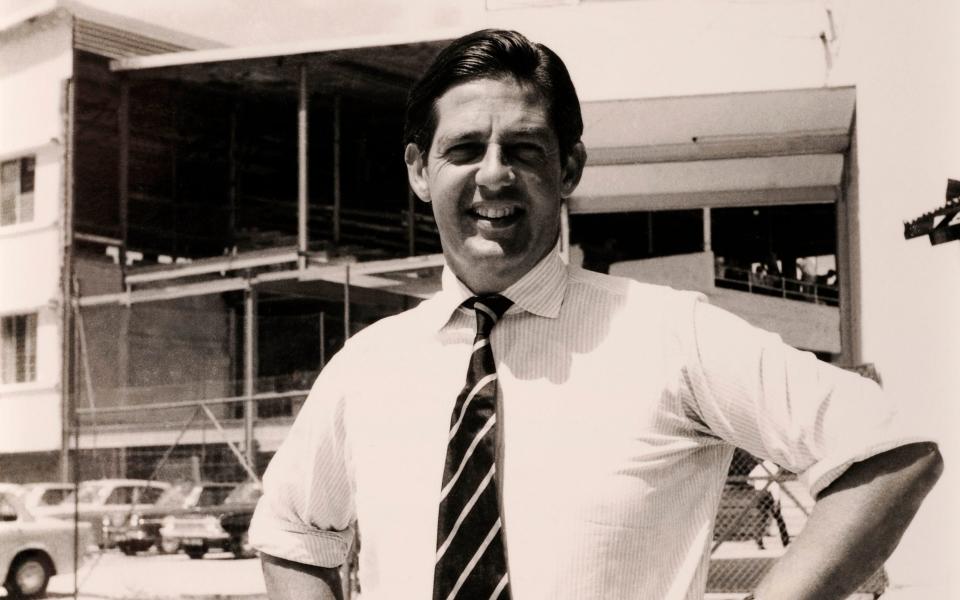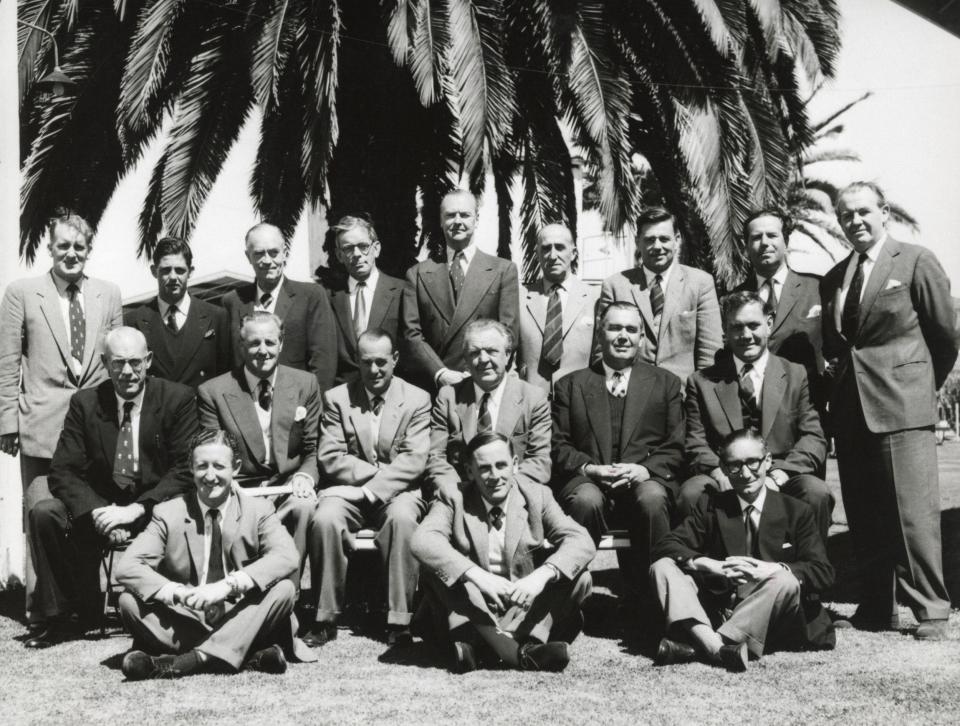John Woodcock, doyen of cricket writers who was held in high esteem by the players – obituary

John Woodcock, who has died aged 94, was a cricket writer whose views won him as much respect from the players themselves as they did beyond the boundary; yet in comparison with his friends and rivals, E W Swanton of The Daily Telegraph and the commentator John Arlott, Woodcock was not a household name.
Modest and not especially ambitious, Woodcock was not one to revel in the gaze of television or the self-importance of Test Match Special on the radio. Surprisingly for a man whose writing appeared effortless, he said that he had to work at his craft.
The greatest enjoyment he derived came through watching the game and mingling with players and administrators. He was fortunate in that his career on The Times and with Wisden and The Cricketer, took place for the most part in a period when writers mixed happily with players and there was no requirement to report indiscretions off the field.
Indeed, when England won the Ashes in Australia in 1954-55, Woodcock, who was ill at the time, was invited by the captain, Len Hutton, and the team to watch the closing overs in the dressing-room. He did not have to cover a great deal of one-day cricket and there was infinite time on the tours of the 1950s, 1960s and 1970s to forge relationships and see something of the world.
Several of the players with whom he toured on his first two visits to Australia, in 1950-51 and 1954-55, became lifelong friends - Hutton, Alec Bedser, Brian Statham, Denis Compton and, particularly, Colin Cowdrey, among them. He played golf with Hutton, Herbert Sutcliffe and Geoffrey Boycott, went duck-shooting with Harold Larwood, partridge-shooting with Imran Khan and bonefishing with Ian Botham. He took a stumping off Tiger O’Reilly and batted alongside Wally Hammond in his last (uncompetitive) match.

Even though he wrote one book, The Ashes, in 1956, and was not above a good gossip, Woodcock chose not to write an autobiography. This was partly, no doubt, because of his modesty, but also through not wishing to harm any reputations – or the game.
In some respects Woodcock’s opinions were predictable: he supported South Africa in their years of isolation and had a particular dislike of excessive bouncers, sledging, and Kerry Packer’s World Series Cricket. His verdict on Tony Greig, the South African-born England captain who became one of the chief organisers of these breakaway matches, was particularly withering (and long resented).
“What has to be remembered, of course, is that he is an Englishman not by birth or upbringing, but only by adoption. It is not the same thing as being English through and through,” wrote Woodcock.
John Charles Woodcock was born at Longparish in Hampshire on August 7 1926, the son of Parry John Woodcock, the rector of the village and a keen fisherman, who was then in his seventies. John and his brother Hugh, who became a prep school headmaster, are depicted in a photograph with a horse and cart, making the morning delivery from a milk churn to the village in the mid-1930s.
Woodcock was a natural ball player, but at the age of 15, studying at St Edward’s in Oxford, he contracted septic arthritis in his hip and spent four months hanging from a frame to prevent it from spreading. At one stage his mother was called to his bedside, so close to death did he come. Thereafter he walked with a limp, and grew to no great height, but none the less was in the school first XI. He would watch first-class matches in the Parks in Oxford.

At Trinity College, Oxford, he won hockey Blues as a goalkeeper in 1946 and 1947. He briefly attempted a career in schoolmastering before he secured a berth on MCC’s 1950-51 tour of Australia as assistant to Swanton and as newsreel photographer for the BBC – who were not told he had no background in that role.
It was his ability to write, however, that brought him to the attention of The Manchester Guardian, for whom he became cricket correspondent for two seasons before The Times took him on in 1954. Hence he and Swanton, who by then was well-established at The Daily Telegraph and with the BBC, sailed to Australia that winter on equal terms.
The more assertive Swanton soon developed a respect for Woodcock, calling him “the supreme non-professional” on account of his not having had any training as a journalist. Woodcock never knew whether to take this as a compliment or not.
When a somewhat disobliging biography of Swanton was published after his death, Woodcock, a kind man, took great umbrage with the writer, feeling that the portrayal was unjust. “I will not have a word said against Jim,” he would say.
Of numerous controversies Woodcock covered, the most significant was the Basil D’Oliveira affair in 1968, when England’s tour to South Africa was cancelled as the hosts would not accept D’Oliveira’s selection for the England squad.

Almost as controversial was Kerry Packer’s signing up of the best players in the world for his own unofficial series at the end of the 1970s. Woodcock was implacably opposed to the development, regarding the Australian entrepreneur as an evil man.
Woodcock had one or two surprising soft spots, most notably for Geoff Boycott, who called him, with affection, “Uncle John”. He observed more than 400 Test matches and, like Swanton, preferred to sit in judgment on the technical merits of cricketers rather than probe into the politics of the dressing-room. Luckily The Times, Wisden – which he edited from 1980-1986 – The Cricketer and Country Life did not require him to do so.
That is not to say Woodcock could not be damning: Fred Trueman would not speak to him after he wrote that the great fast bowler had taken more wickets through his radio summaries than he ever did on the pitch.
Woodcock stood down as cricket correspondent of The Times in 1987. Although he had covered some golf, and was once seen at a football match, writing about other sports did not especially appeal. In retirement, he served on MCC’s committee.
The career he chose was not suited to marriage and family life and he continued to live as a bachelor at Longparish, where he lunched at the pub, presided over the cricket club and was patron of the church, where a stained-glass window called “The Four Seasons” celebrates his family’s 250-year connection with church and village, clinging valiantly to the 1662 liturgy.
He was appointed OBE in 1996 and would watch and on occasion write about cricket well into old age.
John Woodcock, born August 7 1926, died July 18 2021

 Yahoo Sport
Yahoo Sport 





































